Role and Safety of
Food additives
As the number of single-person households, elderly households and nuclear families increases, our lifestyles are becoming more diverse. There is an increasing demand for processed foods that enable people to enjoy delicious food in the quantities and at the times they want.
Food additives, such as antimicrobials and food quality improvers, are used in the production of processed foods to improve production efficiency and to preserve food. Without food additives, the microorganisms that cause food to spoil can’t be prevented from growing. Food additives can constantly control the appearance, texture, and flavor of processed food. Without food additives, we would not be able to enjoy delicious and safe food when we need it.
Especially in processed foods such as bento, lunch boxes sold in convenience stores and the cooked meals available in supermarkets, food additives play an important role in improving shelf life and food quality.
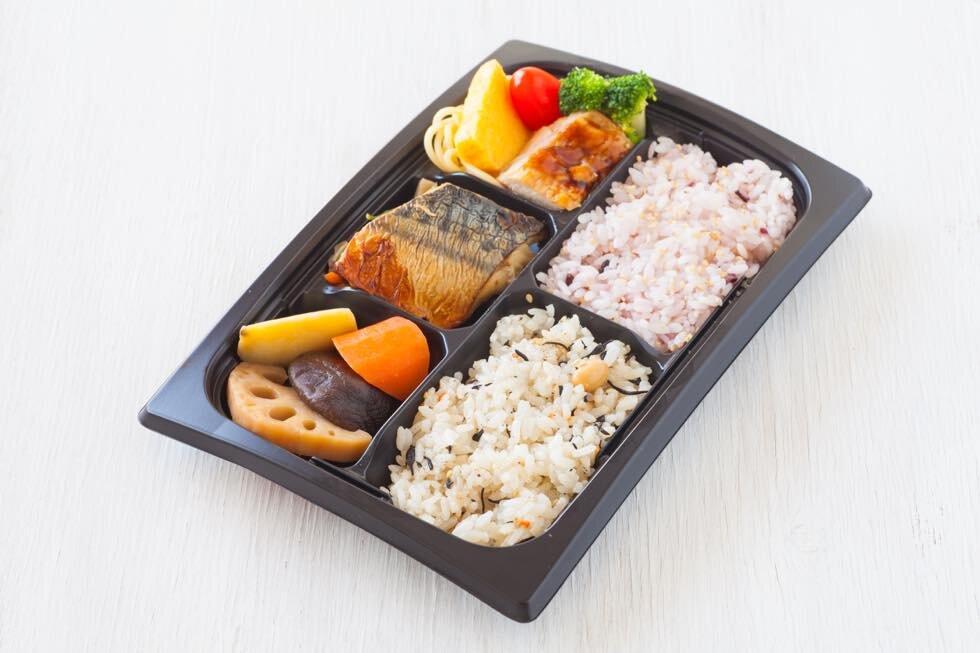

Examples of food additive usage
Antioxidants, a type of food additive, are used to prevent the discoloration of vegetables and fruits.
If immersed in a solution containing antioxidants, vegetables and fruits can retain their color over time as they did when they were cut. Compared to untreated products, food additives reduce discoloration, browning and off-flavors.
Comparison of banana discoloration
(immersed in 2x diluted solution → 15°C, 24 h later)
-
No addition
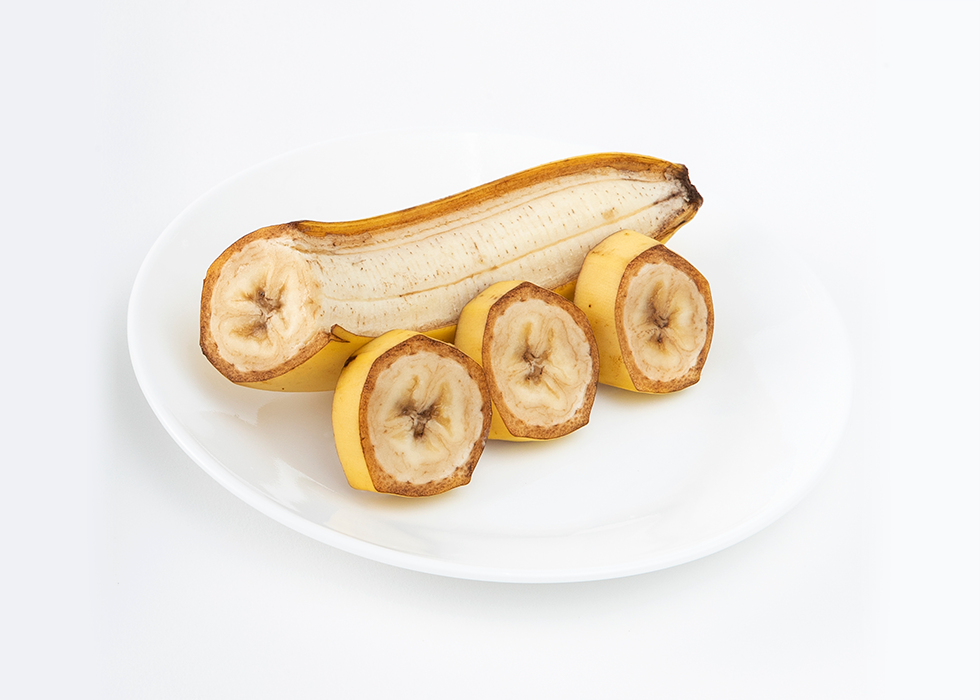
-
With FRUIT KOMACHI 1000
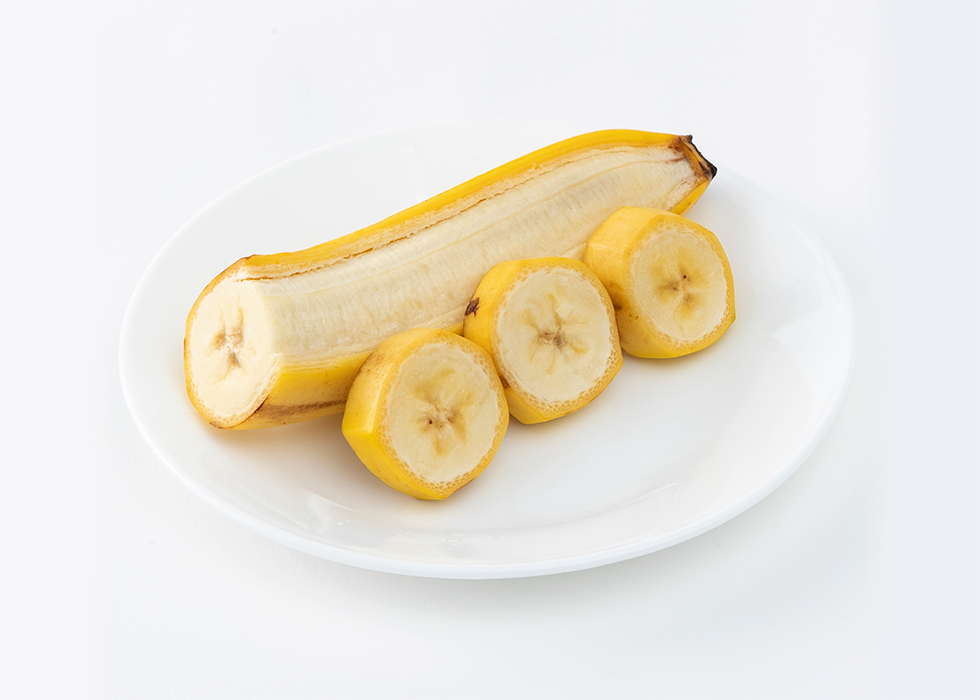
Comparison of apple discoloration
(immersed in 4x diluted solution → 15°C, 48 h later)
-
No addition
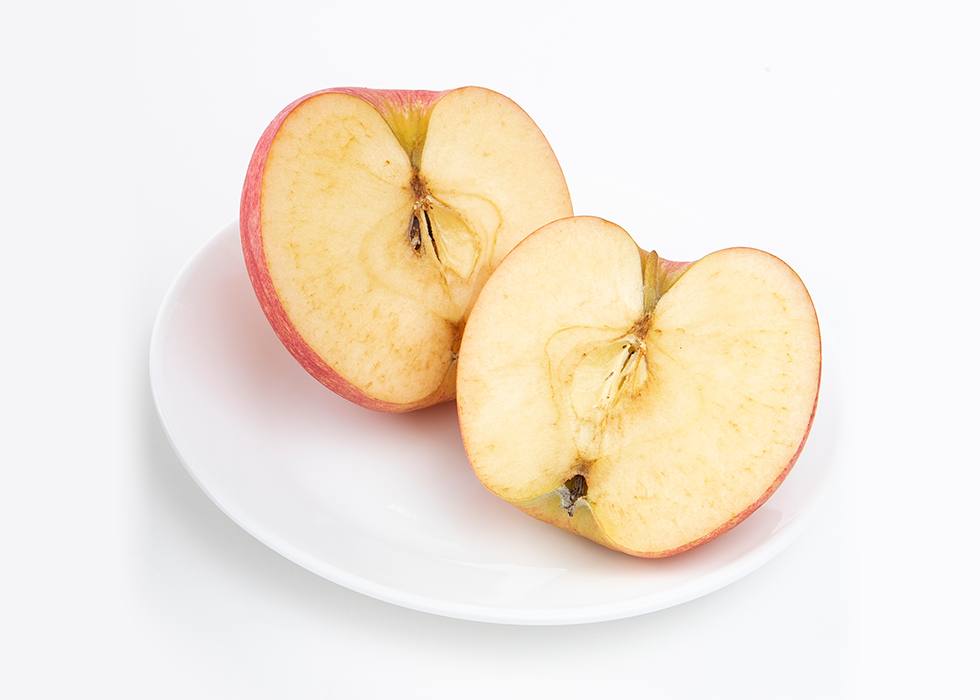
-
With FRUIT KOMACHI 1000
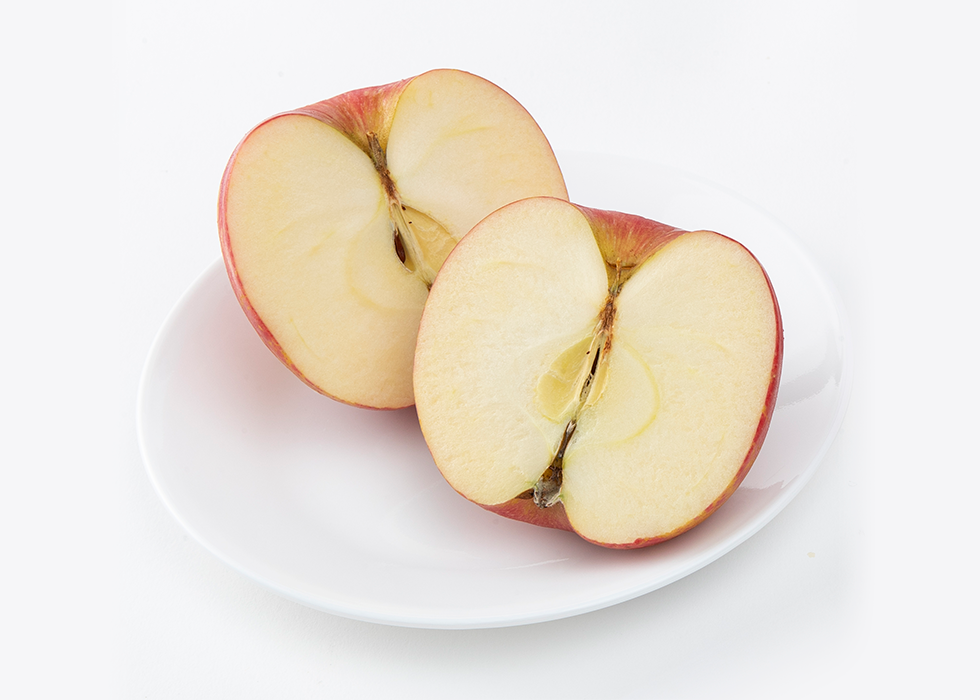
Safety of Food Additives
Food additives play an important role in society. However, they are sometimes suspected of having a negative impact on health. When food additives are reported in the media, the risks of over-consuming are often widely reported. The ongoing concern about food additives stems from the widespread belief that "no additives are better for you" and that "natural ingredients are safe, while chemicals and synthetic ingredients are not". Just as salt and sugar can be harmful to your health when consumed in excess, substances found in nature are not always safe.
In Japan, the Food Safety Commission in the Cabinet Office of Japan conducts risk assessments on food additives. The Food Safety Commission conducts various toxicity tests to determine how much of a substance has no effect on the human body and calculates the No Observed Adverse Effect Level (NOAEL). To apply the data to humans, an Acceptable Daily Intake (ADI) is set at one-hundredth of the dose considered non-toxic.
The ADI is the daily amount of a food additive that is considered safe, with no adverse health effects, even if consumed daily. This ensures that food additives are considered safe in Japan. The standards and criteria for the use of food additives are based on strict safety assessments, so there is no immediate risk to our health when we consume them in our daily lives.
Reference: Official website of the Food Safety Commission of Japan
Viewpoints on the safety of food additives
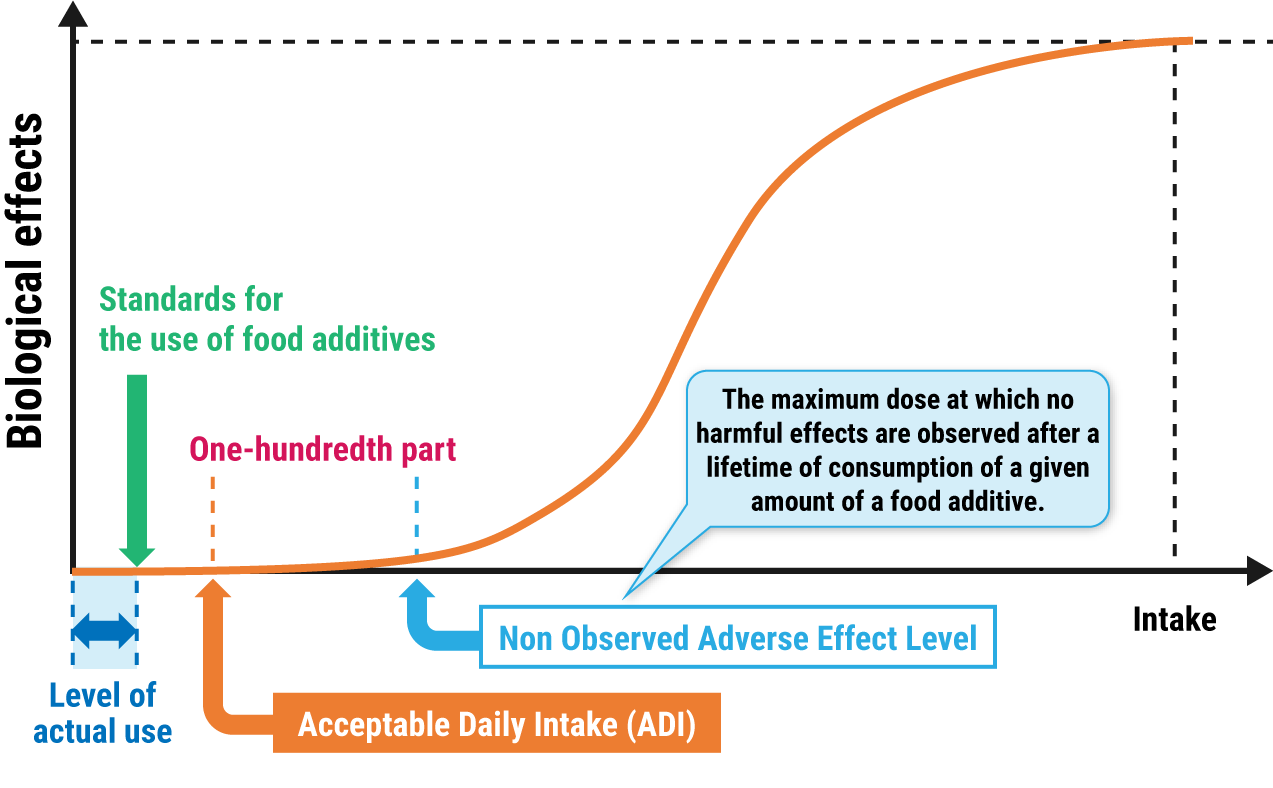
Initiatives to reduce food waste and food loss
Food that is unsold, uneaten or thrown away is called food loss and food waste.
The amount of food loss and food waste in Japan is approximately 5.23 million tons, which is about 1.2 times the amount of food aid provided by the UN World Food Programme (WFP) in 2021.
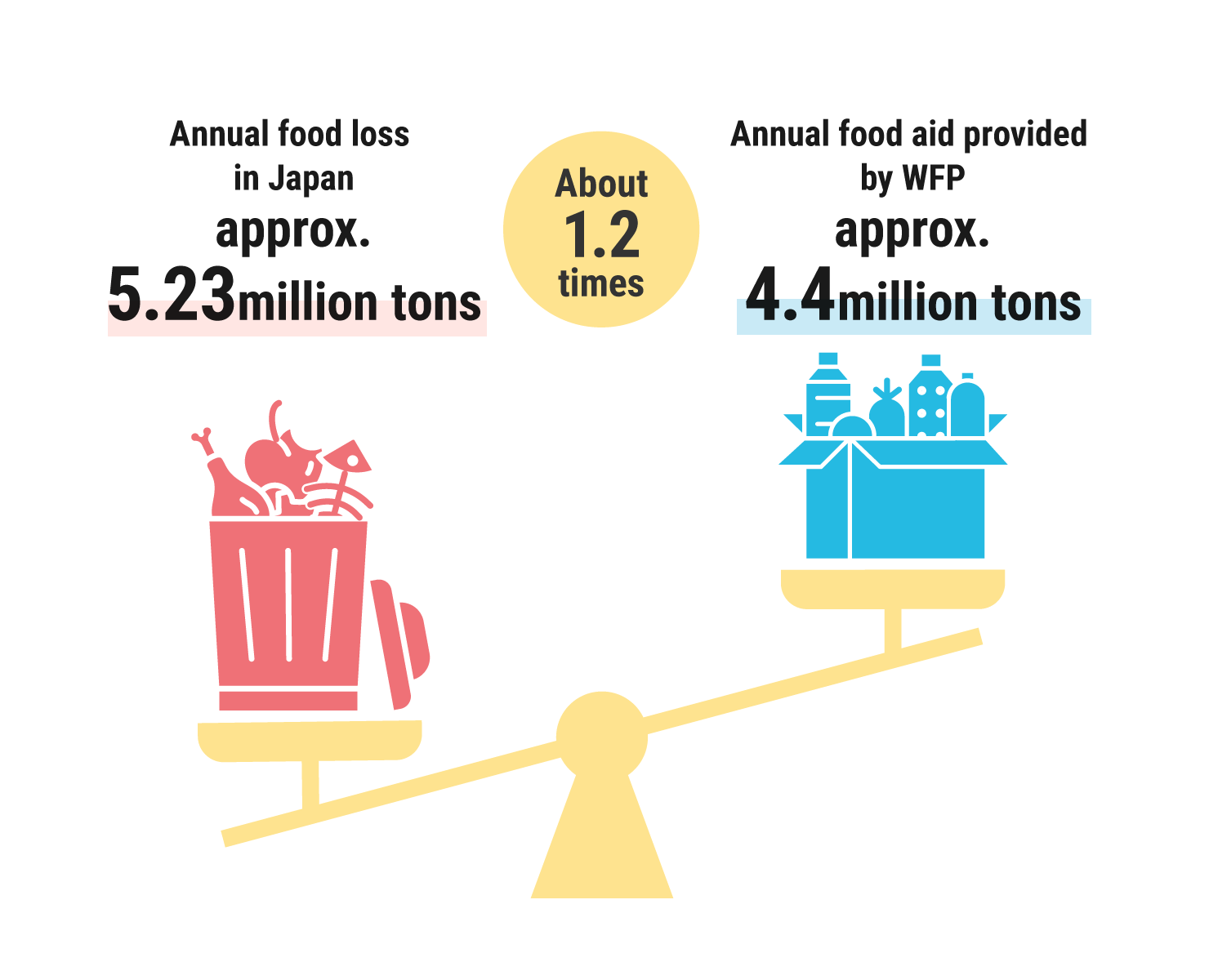
Reference: Official website magazine (aff) of the Ministry of Agriculture, Forestry and Fisheries of Japan
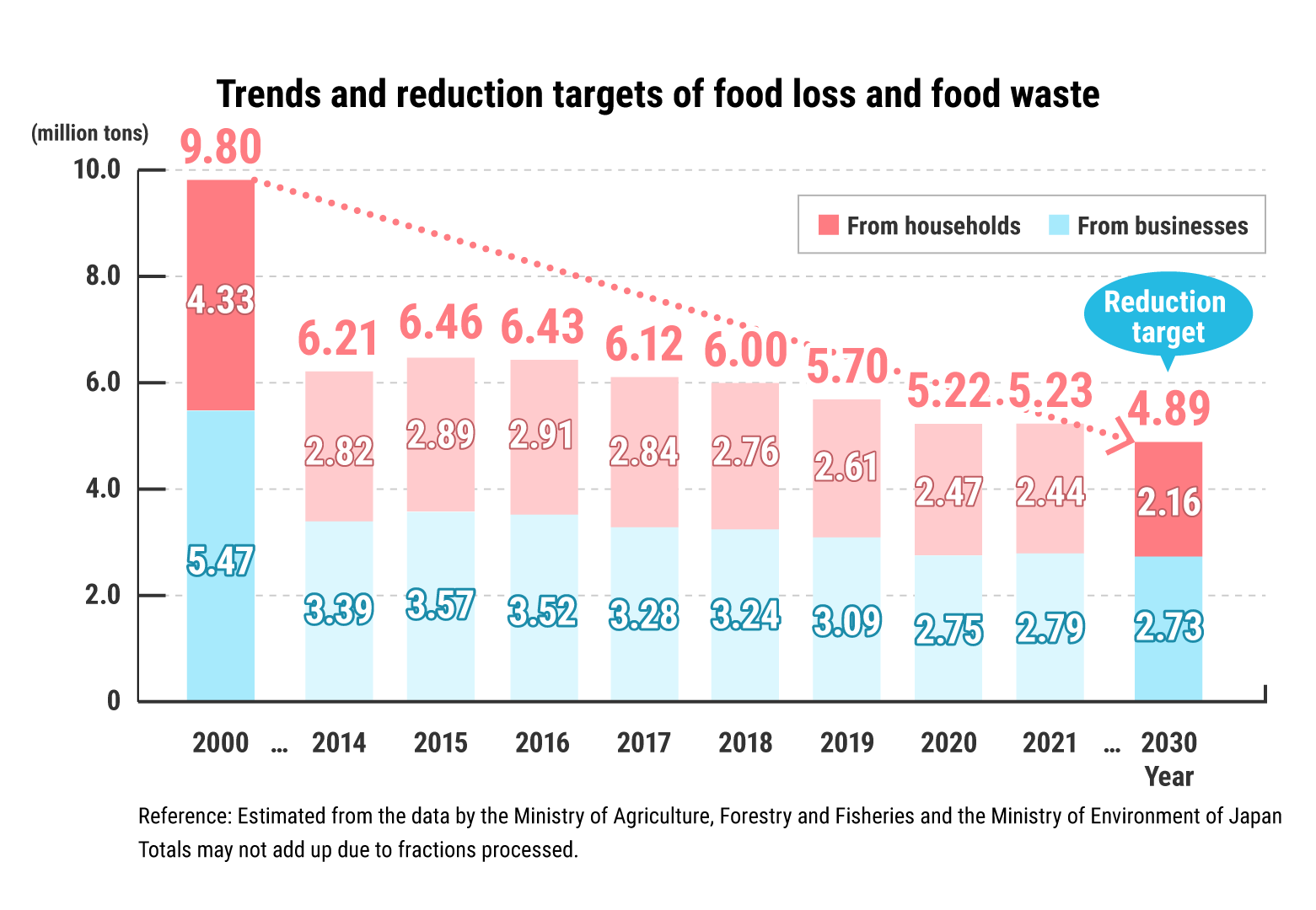
Reference: Official website magazine (aff) of the Ministry of Agriculture, Forestry and Fisheries of Japan
By FY2030, Japan aims to halve food loss and food waste from businesses and households compared to FY2000 levels, in line with the SDG targets.
OKUNO has developed many food additives and food materials that lead to reduction of food loss.
OKUNO is committed to promoting corporate activities that contribute to society as a whole, with the aim of achieving a sustainable society.
